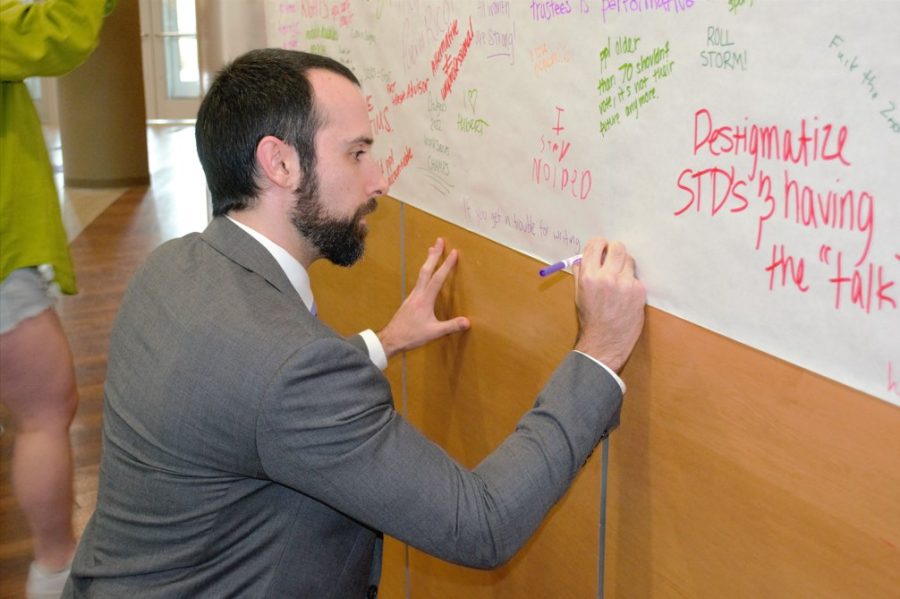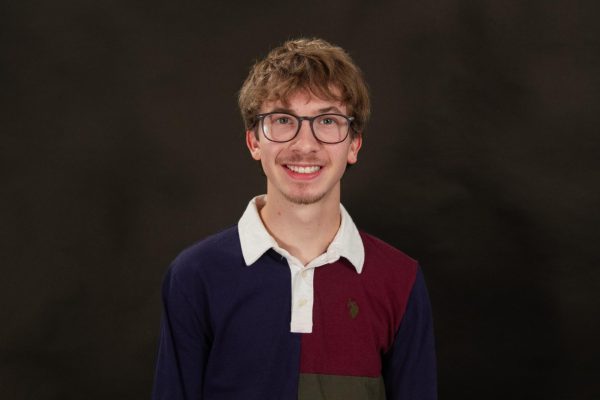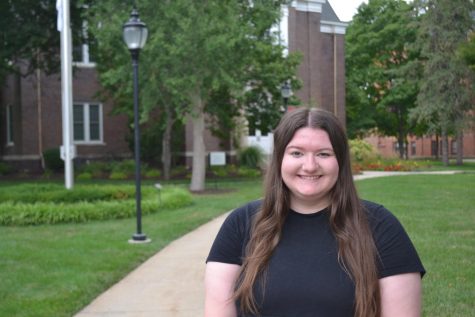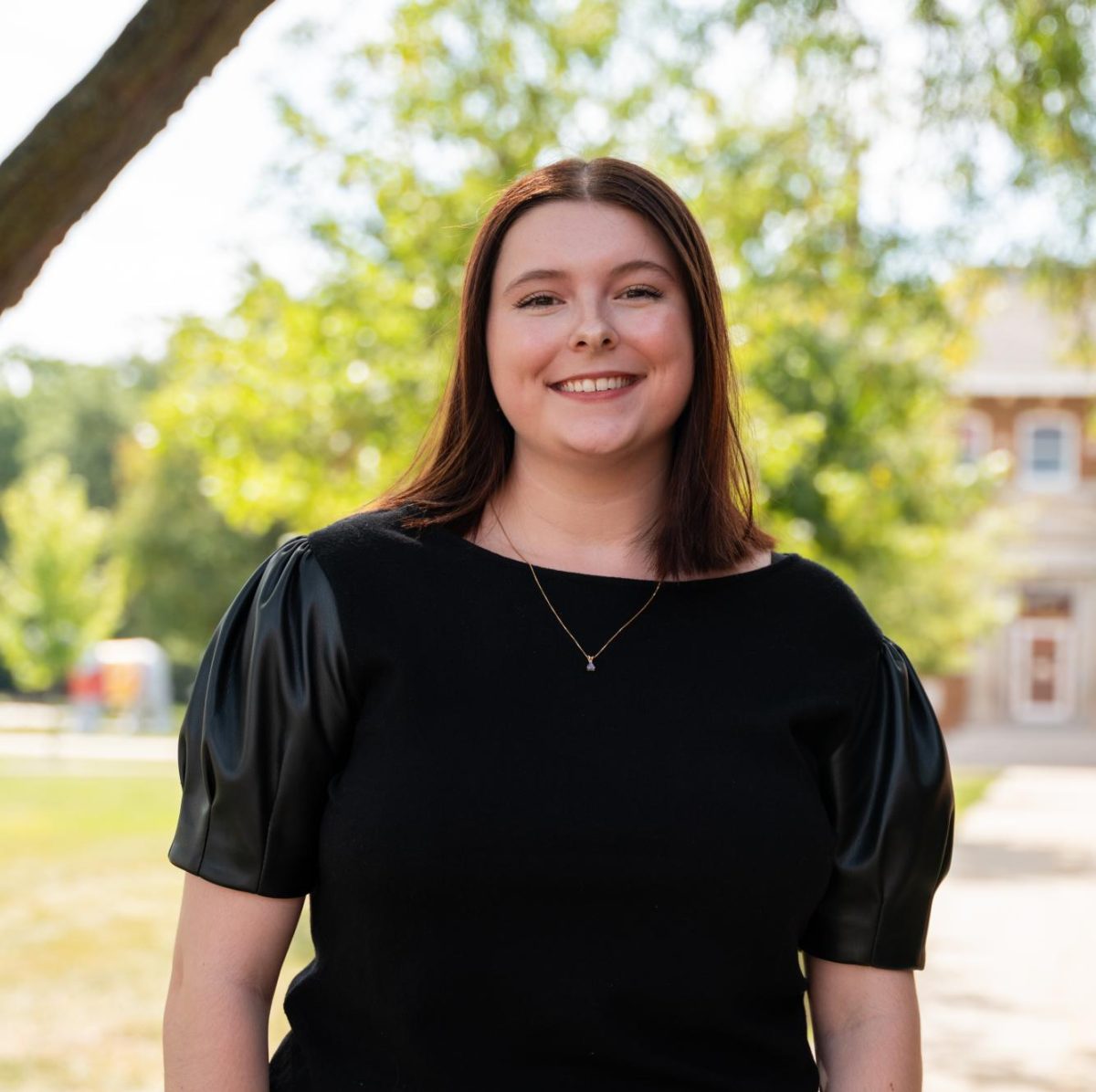Annual Constitution Day Lecture: Freedom of speech is FIRE
Aaron Terr, who spoke on behalf of FIRE, adds to the student media free speech wall before his speech in Hubbell Hall.
September 23, 2022
In the following days after National Constitution Day, Saturday, Sept. 17, Simpson College invited a free speech specialist to come to give the annual Constitution Day lecture.
The freedom of speech is highly debated in both archaic and modern politics. College campuses are no exception. The Foundation for Individual Rights and Expression (FIRE) has focused on such issues in higher education since its founding in 1999. With a recent rebranding, they are branching out from higher education into K-12 education and personal expression of free speech alike.
Aaron Terr, Senior Program Officer of the Campus Rights Advocacy department, delivered this year’s Constitution Day speech.
Terr has earned his J.D. from the University of Virginia School of Law, and recently joined FIRE. His primary focus has been on the right of free speech on college campuses across the nation.
“I started to notice what seemed to me, like a shift in the culture of free speech on college and university campuses, but also elsewhere; a reduction in tolerance for views that people disagree with and this increased polarization where people see the other side not only as wrong, but evil, and so are less willing to engage across lines of difference,” Terr said.
“I want to be part of an organization that not only fights to preserve free speech as a constitutional right but also as a value that people in this country cherish.”
Emphasizing how important the right is, and how it lays the foundations for so many other freedoms outlined in the First Amendment, Terr said, “You can’t freely argue for other rights or laws, policies or ideas without being able to speak freely.”
The freedom of speech was ratified in 1791 as a part of the First Amendment and has now taken a completely different look with its evolution into modern society.
College campuses have begun to implement diversity, equity and inclusion (DEI) standards in the mission statements, Simpson College being one of the many.
“Diversity, equity and inclusion make free speech even more important,” Terr said.
Now more than ever, issues regarding DEI need to be addressed and discussed on and off college campuses.
While public schools are adherent to the government, therefore being aligned with the freedom of speech by association. Terr noted that private schools are not held to the same standard, but that doesn’t mean they shouldn’t adopt these freedoms and their values on their campuses.
“When it comes to students exercising their right to free speech, colleges should play a supportive and educational role,” Terr said.
Simpson College has adopted such normalcies in line with the freedom of speech, but that doesn’t mean students aren’t afraid of the consequences seen at other institutions for exercising the right.
“FIRE’s latest student free speech survey found that 63% of students fear damaging their reputation for speaking their mind,” Terr said.
FIRE aims to uphold the rights of free speech for all students and ensure their constitutional rights are being upheld to the highest of standards.
“Free speech, to me, is the freedom to be who you really are; to explore the ideas that interest you, and to enjoy the world and other people as they really are,” Terr said. “In an authentic society, we’re open to all sorts of views, and we’re willing to engage with even people we disagree with in a civil way, and generally live in a tolerant and open free society.”
Terr sparked the question of what it really means to have the freedom of speech on a college campus. The freedom is so often cast-aside as an assumed right that we have as people, but it’s challenged constantly. That’s why FIRE was founded.
“I didn’t expect to think so critically about freedom of speech until I heard the lecture,” junior Wendy Soto said. “It made me think more about what it means to have this freedom, why it’s so important, and figuring out where to draw the line.”
FIRE plays a vital role in free speech across the nation with their first step addressing the issues of those impacted the most: college students.







